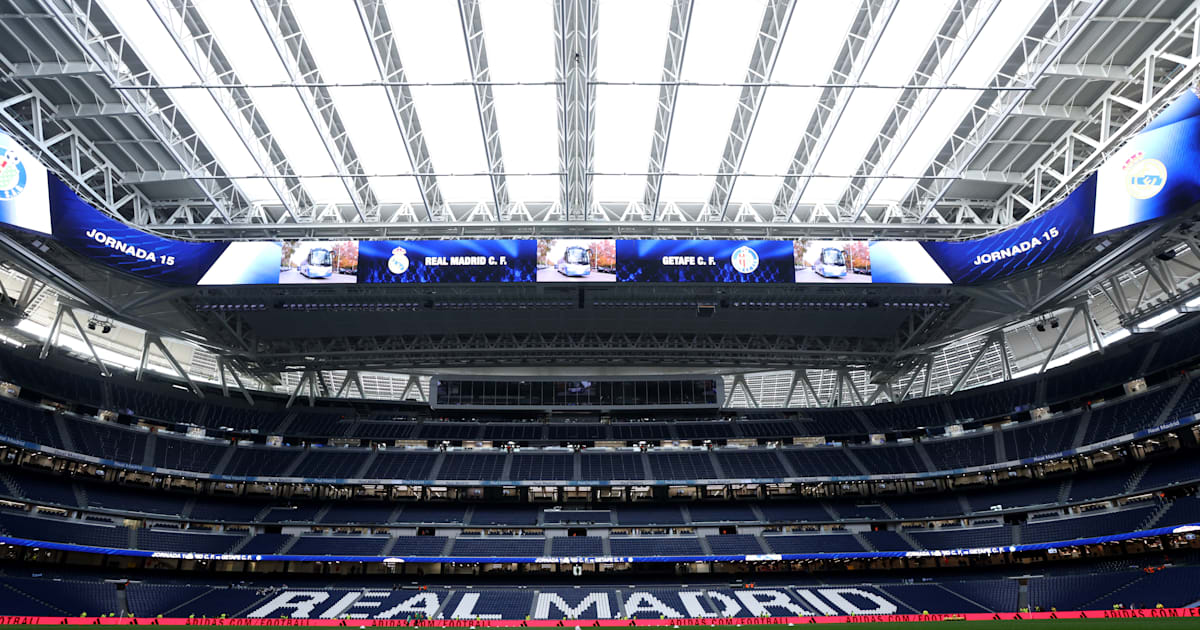World
FIFA World Cup 2030 venues: Full list of stadiums in Spain, Portugal and Morocco

- Anoeta – Donostia-San Sebastián
Located in the picturesque city of Donostia-San Sebastián, the Estadio Anoeta is the home ground of Real Sociedad.
FC Barcelona’s iconic home will be the biggest European stadium at the World Cup, which the club plans to reach a capacity of 105,000 once ongoing renovations have been completed.
The Camp Nou has previously hosted two Champions League finals as well as five World Cup matches, back when Spain hosted the 1982 edition.
- Gran Canaria – Las Palmas
Spain’s island territories will be represented by the Canary Islands and the Estadio Gran Canaria, home of LaLiga outfit Las Palmas.
Originally built as an athletics stadium and part of Seville’s bids for the Olympic Games of 2004 and 2008, La Cartuja has established itself as an important stadium for Spanish football as the country’s fifth largest stadium.
The Spanish national team has played many matches in Seville, including all three of their group stage matches at Euro 2020 held in 2021.
Its name literally translating to ‘The Rose Garden’ in English, the home of Málaga CF was one of the host venues for the 1982 World Cup.
The Estadio Metropolitano is the third biggest stadium in Spain and has been the home of Atlético de Madrid since 2017.
It has a capacity of 70,000 seats and is one of the nation’s standout stadiums, having previously hosted the Champions League final in 2019.
- Nueva Romareda – Zaragoza
Real Zaragoza’s ground was used at the 1982 World Cup for the group stage, and in 2030 it will be renovated and expanded to have 43,000 seats in time for 2030.
The 40,000-seater stadium is home to Barcelona-based RCD Espanyol, joining Madrid and Lisbon as one of three cities to have two host stadiums.
It was inaugurated in 2009 with a friendly against Liverpool, and the following year was named the Best Sports Facility in the world.
Galicia’s sole stadium at the World Cup will be the Estadio Municipal de Riazor, the region’s largest football arena and the home of Deportivo de la Coruña.
Athletic Club’s ground will get the chance to host a major tournament after it was unable to fulfil its hosting duties for Euro 2020 due to the COVID-19 pandemic.
The 53,000-seater stadium is the largest in the Basque Country region, affectionately known as ‘The Cathedral’ by the club’s fans.
- Santiago Bernabéu – Madrid
The home of Real Madrid and one of the biggest stadiums in Europe, the Estadio Santiago Bernabéu will return to the global stage having hosted the 1982 World Cup final.
Its eponymous name comes from the former Real Madrid president and lies in the heart of the Spanish capital, with hopes that it will host the 2030 World Cup final.
- Estádio da Luz – Lisbon
‘The Stadium of Light’ is home to SL Benfica and has been the scene for three major European finals, including the Euro 2004 final where hosts Portugal were stunned by underdogs Greece.
- Estádio do Dragão – Porto
FC Porto’s home stadium was the location of the 2021 Champions League final, built and opened ahead of Euro 2004 with a capacity of 50,000.
- Estádio José Alvalade – Lisbon
The third Portuguese stadium of the bid and the second in Lisbon is the Estádio José Alvalade, where Sporting Clube de Portugal play their football.
Located inbetween the Atlantic Ocean and the Atlas Mountains, Agadir is one of six Moroccan host cities set for the 2030 World Cup. The Adrar Stadium is set to be expanded to accommodate 70,000 fans by the time of the tournament.
- Hassan II Stadium – Casablanca
Morocco’s crown jewel of the 2030 World Cup will be a newly built stadium on the outskirts of Casablanca, the Hassan II Stadium.
The Moroccan football federation have submitted plans to build a 115,000-capacity ground, which would be the biggest stadium at the entire World Cup.
The Fez Stadium can host both football matches and athletics events, built with a capacity of 45,000 and set to host the 2025 Africa Cup of Nations.
- Marrakesh Stadium – Marrakesh
With an identical capacity of 45,000 and serving as the home of Kawkab Marrakech, the Marrakesh Stadium lies on the outskirts of the Moroccan city.
- Prince Moulay Abdellah Stadium – Rabat
The Moroccan capital’s main stadium of the same name was demolished in 2023, as the organisers are constructing a new ground with a planned capacity of 65,000.
- Ibn Batouta Stadium – Tangier
Named after a travelling Moroccan scholar from the 14th century, the Ibn Batouta Stadium hosts 65,000 fans and was the venue for Morocco’s friendly win against Brazil in 2023. It is also the home stadium of IR Tanger.
- Estadio Centenario – Montevideo
The opening match of the 2030 World Cup will return to where it all began 100 years ago: Montevideo, Uruguay.
The Estadio Centenario hosted the inaugural World Cup final in 1930 in an iconic match between Uruguay and Argentina, which ended in a 4-2 win for the hosts and reigning Olympic champions Uruguay.
- Estadio Monumental – Buenos Aires
Three-time World Cup winners Argentina will host the second match of the 2030 World Cup at the Estadio Monumental, where River Plate play their home matches.
This will be the first time in over half a century that a World Cup match will be played on Argentine soil, when the nation of Lionel Messi and Diego Maradona won the 1978 edition.
- Estadio Defensores del Chaco/Estadio Nacional del Paraguay – Asunción
The third and final South American host city is the Paraguayan capital of Asunción, which will be the first World Cup match ever to take place in Paraguay.
Although Paraguay are confirmed to host one of the opening three matches, the stadium is not confirmed. The match will be played at either the Estadio Defensores del Chaco or the Estadio Nacional del Paraguay.









